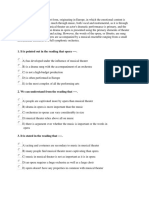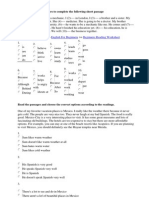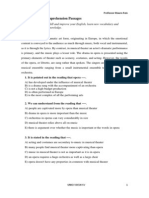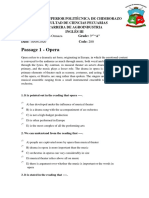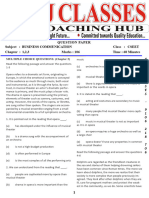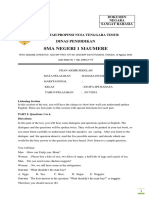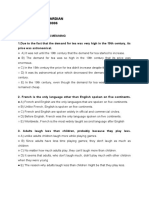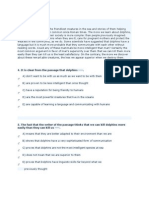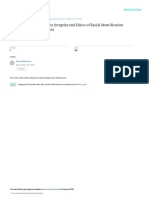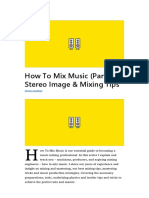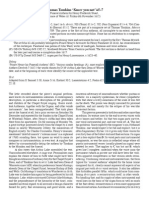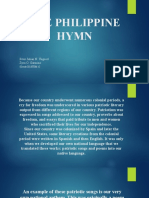0% found this document useful (0 votes)
131 views8 pages2nd Reading Test Practice
The document provides examples of words in context and reading comprehension questions. For the context questions, it asks the reader to identify whether an example, synonym, or antonym is provided in each sentence. The reading comprehension section contains 5 passages on various topics and 3 multiple choice questions for each passage testing understanding of key details and inferences about the information presented.
Uploaded by
Nancy de MatsumotoCopyright
© © All Rights Reserved
We take content rights seriously. If you suspect this is your content, claim it here.
Available Formats
Download as PDF, TXT or read online on Scribd
0% found this document useful (0 votes)
131 views8 pages2nd Reading Test Practice
The document provides examples of words in context and reading comprehension questions. For the context questions, it asks the reader to identify whether an example, synonym, or antonym is provided in each sentence. The reading comprehension section contains 5 passages on various topics and 3 multiple choice questions for each passage testing understanding of key details and inferences about the information presented.
Uploaded by
Nancy de MatsumotoCopyright
© © All Rights Reserved
We take content rights seriously. If you suspect this is your content, claim it here.
Available Formats
Download as PDF, TXT or read online on Scribd
/ 8




